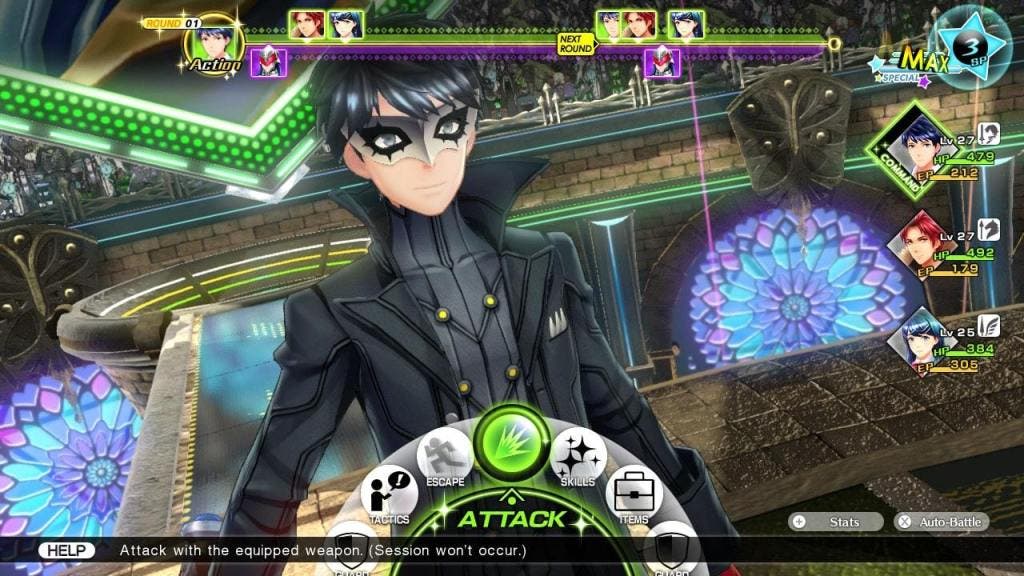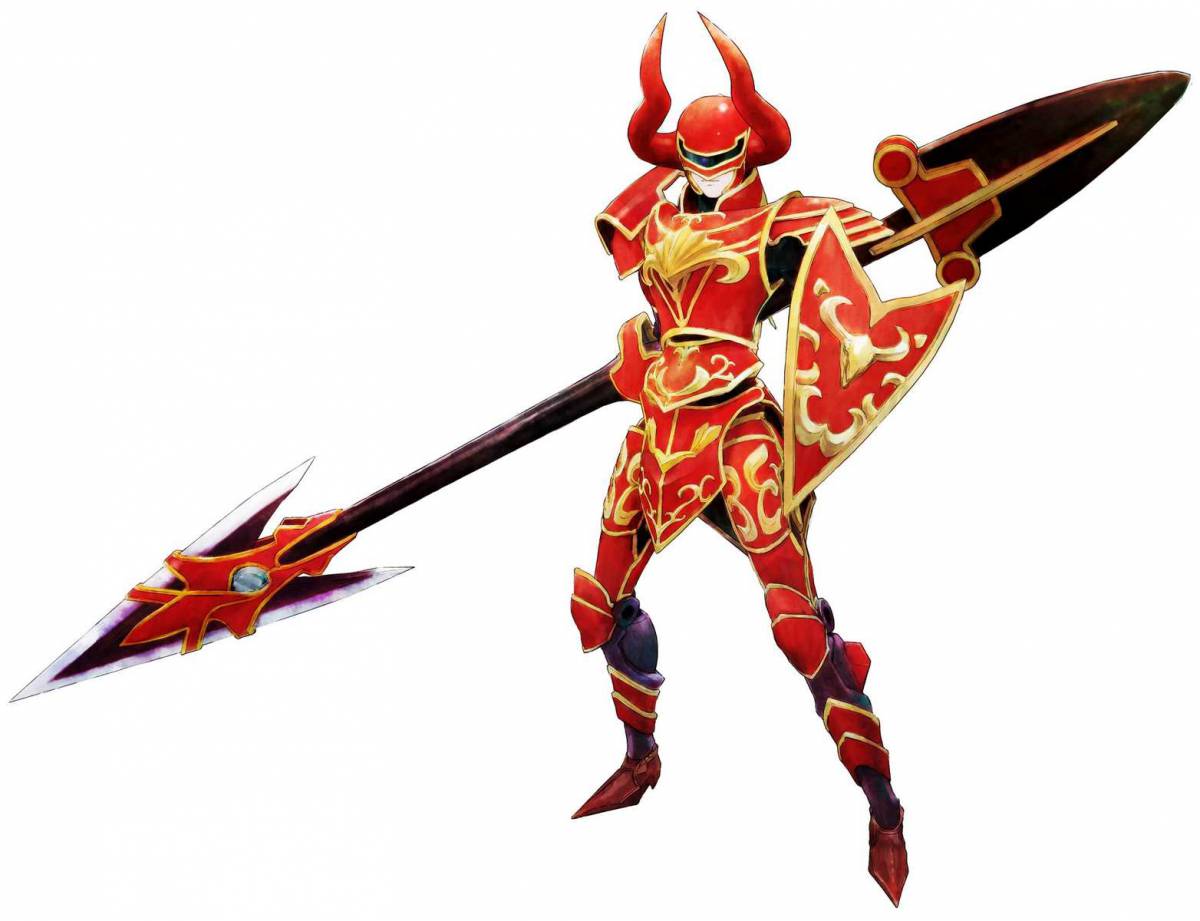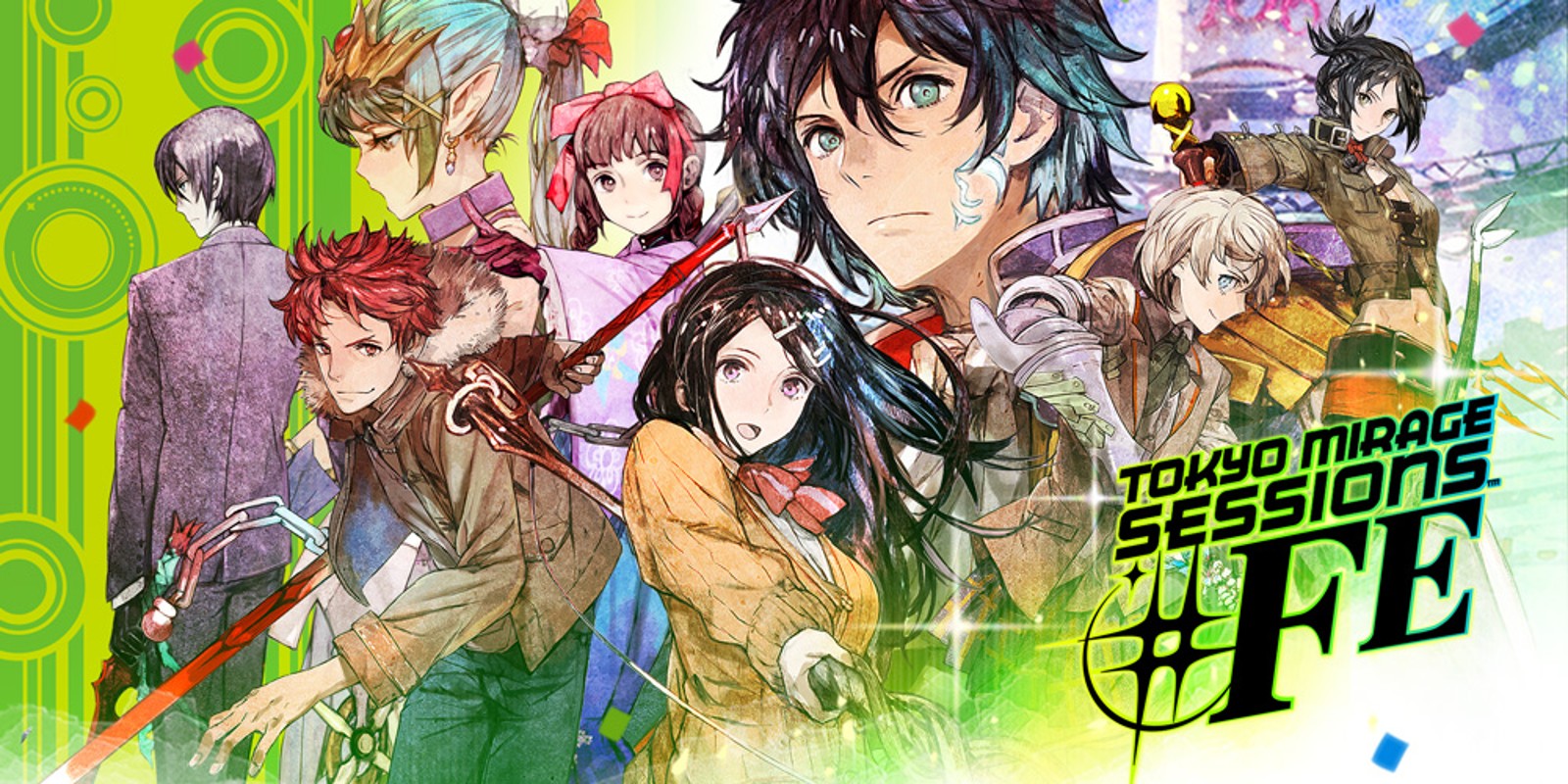Tokyo Mirage Sessions
Tokyo Mirage Sessions #FE Encore is just as censored as the international Nintendo Wii U version of the game, which resulted in a controversy in Japan when Nintendo misrepresented the game in promotional material. Nintendo used to be known for censoring its games, but the company has relaxed its policies over time and is now looser than Sony when it comes to content.
Tokyo Mirage Sessions #FE Encore is a JRPG developed by Atlus that mixes the stylish action of the Personaseries with characters from Fire Emblem. The Atlus style of gameplay has become more popular in recent years, thanks to the mainstream success of Persona 5, so Tokyo Mirage Sessions #FE Encore has a better chance of finding an audience now than the original did on the Wii U back in 2015. The Phantom Thieves might not appear in Tokyo Mirage Sessions #FE Encore, but their spirit lives in the game in the form of new costumes based on the group.
Related: The Outer Worlds Walmart Advertisement Censors Protagonist's Gun

Nintendo has been promoting Tokyo Mirage Sessions #FE Encore as one of the biggest Switch games in the first half of 2020, yet there are some people in Japan who won't be purchasing the game based on its content. Tokyo Mirage Sessions #FE Encore is different in a lot of ways from the original game, as content was changed and cut for the international version of the game and those changes stuck for the remaster.
What Was Cut From Tokyo Mirage Sessions?
Tokyo Mirage Sessions #FE on the Wii U had paid DLC, which included new costumes and dungeons that made it easier for the player to acquire experience points, money, and items. One of the DLC packs that never made its way into the international version of the game involved swimsuit costumes for the party members and a scene involving the characters visiting a hot spring. Titillating DLC is hardly anything new and Nintendo hasn't shied away from it in the past (just look at the DLC in Fire Emblem Awakening), but it seems that the provocative nature of the costumes and scenes kept the DLC out of the international versions of the game.
Tokyo Mirage Sessions ♯FE Encore hits Switch today bringing the worlds of Shin Megami Tensei and Fire Emblem together once more on the Nintendo Switch. Previously on Wii U, this epic JRPG will have you managing a huge roster of characters and the various meters that tell you how healthy they are and what they can do.
What Was Changed in Tokyo Mirage Sessions?
- Tokyo Mirage Sessions ♯FE (Genei Ibunroku ♯FE / 'Strange Mirage Tales ♯FE' in Japan, Working Title Shin Megami Tensei × Fire Emblem) is a JRPG crossover between Shin Megami Tensei and Fire Emblem, released for Wii U on December 26, 2015 in Japan and June 24, 2016 in the western countries.
- Tokyo Mirage Sessions #FE was easily my favourite game on the Wii U. It felt like a playful if unorthodox celebration of two beloved IPs: Shin Megami Tensei and Fire Emblem.Sporting.
- Jan 17, 2020 Tokyo Mirage Sessions #FE was a 2015 Wii U title that combined gameplay, story, and character ideas from two popular franchises: Shin Megami Tensei and Fire Embem. It follows a group of musically-inclined teenagers who encounter strange beings called 'Mirages.' Friendly Mirages, appearing as Fire Emblem characters, merge with the teenagers to.
It wasn't just the swimsuit DLC that was changed, as Tokyo Mirage Sessions #FE underwent significant changes for its international release. The ages of the teenage cast members were increased, which led to a lot of the Japanese dialogue being rerecorded to accommodate for the different ages, even though the vast majority of the players wouldn't recognize the change.
Some of the costumes worn by the female characters were lengthened or altered to show less skin, while all of the skirts in the game added black voids to obscure any underwear shots. A boss monster with an ample bosom had its chest covered with an obvious and distracting smoke effect, while an entire dungeon that was centered around bikini modeling was completely reworked, with all of the suggestive outfits being replaced with more modest clothes.
Related: Read Our Tokyo Mirage Sessions #FE Encore Review
It's surprising that Atlus/Nintendo put so much effort into censoring Tokyo Mirage Sessions #FE, due to its already limited appeal and the fact that it was appearing on a system with such a small audience. It might have made more financial sense to release the game with a higher age rating than sinking a lot of money and time into changing it in such a way that might alienate its core audience.
The Nintendo Switch Pre-Order Controversy
Tokyo Mirage Sessions #FE has been remastered for the Nintendo Switch as Tokyo Mirage Sessions #FE Encore. The game was announced during the September 2019 Direct and fans quickly noticed that the footage appeared to show the censored female boss. This same footage appeared in the Japanese version of the trailer, but the official website for the game used screenshots from the uncensored original version of the game, so fans in Japan were unclear as to what version they would be getting.
It turned out that Tokyo Mirage Sessions #FE Encore was based on the international version of the game, which meant that it would be censored. Nintendo of Japan issued an apology to its fans for misleading them and offered refunds to anyone who purchased the game on either the Nintendo Store or the Nintendo eShop. The screenshots on the official website were updated and it was made clear that the Japanese version of the game would be censored.
Tokyo Mirage Sessions #FE was cruelly overlooked on the Nintendo Wii U and it's doubtful that showing some extra skin would have helped the game's chances. We can only hope that the censorship of the game doesn't detract from the game's second chance at success, especially as all of the censored content is easily found online for those who are curious as to what was cut.

Next: Blizzard Censors Hearthstone Cards in Latest Update

Tokyo Mirage Sessions #FE Encore is available for Nintendo Switch.
As is the case in most JRPGs, winning battles in Tokyo Mirage Sessions #FE Encore is dependent upon several factors. Equipment is one; strategy is another. Both of these can only carry one so far though. There’s a third leg holding up the stool of victory and that’s a well-developed party. It’s not exactly difficult to build a team capable of getting the job done, but it’s also not terribly hard to develop a team that’ll struggle against bosses and Savage Enemies later in the game. Fortunately, Tokyo Mirage Sessions #FE Encore makes it easy to guide the development of every character in the player’s party, meaning that everything will turn out just fine so long as one follows a couple of important guidelines while making their way through the game.
Do Every Side-Story
Tokyo Mirage Sessions #FE Encore isn’t an RPG on the scale of something like The Witcher 3: The Wild Hunt; its map is relatively small, its side-stories are short and everything is contained to its own chapter. All this is to say that it’s easy to get through all the game’s side-stories, which is a good thing since these are essential to every character’s growth. Through advancing and eventually completing their side-stories, characters gain new special skills and powerful performances which will greatly increase their value in combat.

Some of these stories are advanced by advancing the main story, but some also require the player to complete a number of smaller, mini-quests called “Requests” before they’ll advance. Requests never take more than a few minutes to resolve, so one might as well do whichever ones are available in a given chapter. Indeed, it might be better to just aim to do everything rather than try to stick only to the main mission and side-stories since it all pays-off well in the end.
Active Skills are for Taking Action
Unfortunately, characters cannot hang onto every skill they earn over the course of the game. Skill slots are finite, meaning one has to fill them with the best possible skills they can. This could potentially make for a tough decision every time character unlocks a new skill, but that doesn’t necessarily need to be the case. All offensive spells have only two variants: single-target and multiple-target. Since all enemies have resistances, immunities and even the capacity to repel certain damage types, single target attacks are generally safer and are thusly more valuable.
Attack spells are also generally more valuable than support skills. It’s not that support skills aren’t powerful and effective in their own right. Rather, it’s because items exist in Tokyo Mirage Sessions #FE Encore that accomplish the same effect. Some of these can only be carried in limited quantities true, but not so little that one would miss having the corresponding skill taking up a valuable slot. Most of these items are extremely easy to acquire too; all one has to do in most cases is pick them up at the Hee Ho Mart. So if choosing between skills is proving difficult then follow this rule: Attack > Support and Single-Target > Multiple-Target.
Passives and Sessions
If the active skills mentioned above represent one half of the character-building equation, then passive and session skills represent the other. Choosing among these isn’t quite so clear cut as their effectiveness depends heavily on each character’s class and their role on one’s team. Rather than worrying about min-maxing though, one can generally do fine so long as they stay consistent with their choices. For sessions, covering as many attack types as possible is usually a good idea since it allows most party members to join in on a wide range of sessions. Alternatively, one could build each character to chain off of only magic or only physical attacks. This would allow one to see different kinds of sessions more often, but there’s also potential for more short sessions since everyone’s more specialized.
Passive skills can also be set up in any number of ways depending on what the player wants, but it’s generally effective to favor defensive skills over offensive ones. Skills that grant resistances and increase evasion against a character’s weaknesses (physical attacks especially) should be favored over those that enhance certain attacks or stats. Of the latter two, stat-affecting skills should be the lowest priority. This is because character stats increase with level-ups anyway and can already be enhanced through accessories; there’s no good reason to waste a slot on them unless one is going for a specific build.
Shin Megami Tensei X Fire Emblemteaser Trailer, Via Nintendo On YouTube

CERO
Building defensively and generalizing each character’s list of session skills isn’t the only way to go of course, but it’s a method that will serve new players well once they hit the mid-to-later portions of Tokyo Mirage Sessions #FE Encore. One need not even stick to it if they feel like making their characters more specialized. Re-doing one’s builds in the late game can be kind of a pain, but it’s going to be much more doable now that the bonus dungeons (aimed specifically at helping players level-up quickly) are going to be included as part of the base package. So don’t be afraid to experiment if aggressive builds sound more exciting!